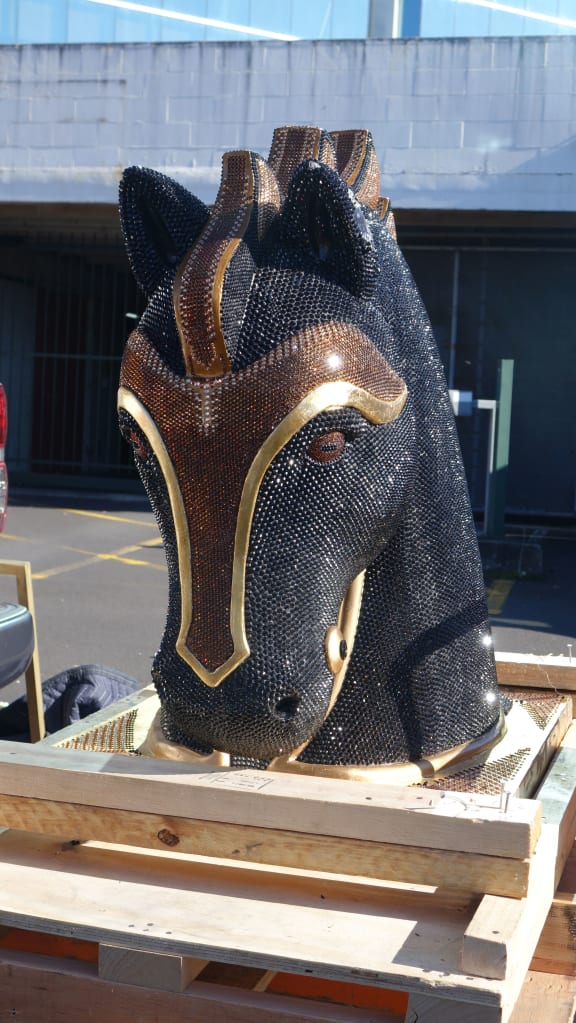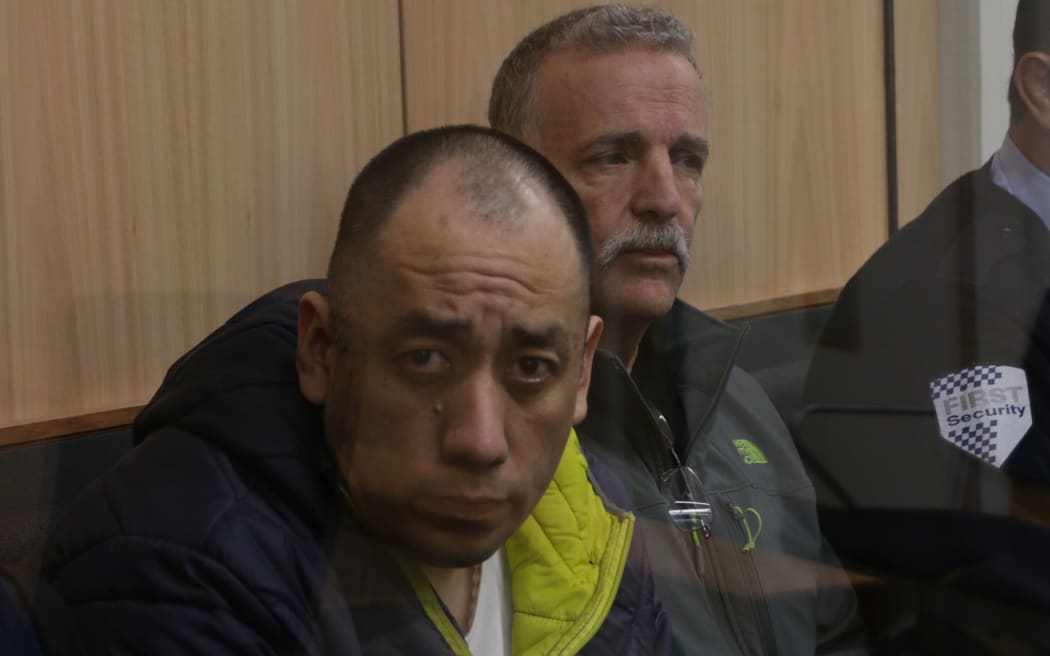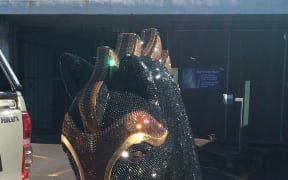Rice risotto cardboard boxes were used to replicate bricks of cocaine found inside a diamond-encrusted horse-head statue, a senior customs officer has told a jury.
Ronald Cook Senior and Agustin Suarez-Juarez have pleaded not guilty in the High Court in Auckland to importing 35kg of cocaine inside the head in May last year.

New Zealand Customs said cocaine was found inside the sculpture. Photo: SUPPLIED
It is the country's biggest ever cocaine bust - with an estimated street value of $14 million.
Details of the extensive undercover operation by Customs and police were revealed today.
Aaron Darby-Smith - a technical specialist at Customs - explained the careful process of replicating the 35 bags of the drug inside the large brick of cocaine found buried deep inside the horse's head.
"We found a rice risotto box at a local supermarket that was the right size.
"And so we cleared them out of their stock, and used the box itself to form the shape of the package."
Mr Darby-Smith said flour was then poured into all bricks, except one.
In the 35th bag, he said, six grams of cocaine was left in it, along with polystyrene, metal rods and a tracking device.
It was then all repacked to look as if it had not been tampered with, he said, before it was then delivered to its intended destination - a storage unit in Onehunga.
The two accused did not arrive into New Zealand until 31 May.

Agustin Suarez-Juarez, left, and Ronald Cook Senior in the High Court in Auckland Photo: RNZ / Edward Gay
The Crown said the sole purpose of the pair's trip was not a holiday to go diving, as they told immigration officers, but to rent a house to move the horse-head sculpture to.
Prosecutor David Stevens said once that was done, the men left, with their every movement being watched by police.
The men returned about a month later, telling Immigration New Zealand they had returned for business.
However, Mr Stevens argued the pair's sole reason for returning was to remove the drugs from the horse head and to supply it to a buyer.
Both lawyers for the accused said their clients did not know a controlled drug was in the package at the time.
The Crown is continuing to give evidence, with the case set down to span over four weeks.



